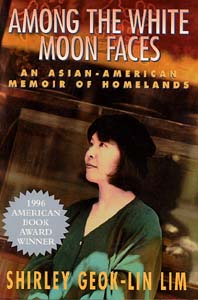Not an Academic Memoir
 This is the first time in a long career that I've found myself
writing and radically rewriting, then yet rewriting a talk for a
conference. The reason, obviously, is that I am not comfortable with the
conference topic; I am the wrong speaker to invite for this particular
subject, "Academics and Their Memoirs," because up to the moment of the
invitation I had never associated my memoir with the life of an
academic.
This is the first time in a long career that I've found myself
writing and radically rewriting, then yet rewriting a talk for a
conference. The reason, obviously, is that I am not comfortable with the
conference topic; I am the wrong speaker to invite for this particular
subject, "Academics and Their Memoirs," because up to the moment of the
invitation I had never associated my memoir with the life of an
academic.
Yet, perhaps it is inevitable the memoir should have been so
categorized; after all, it was written in response to an assignment and
was published by a quasi-academic press, the Feminist Press, housed in
the City University of New York. Florence Howe, then publisher of the
Press, was also a CUNY professor, and in assigning the memoir to me at
an MLA convention, she had turned to Tillie Olsen, whom she had just
introduced me to, to say, "Tillie, Shirley will write her memoir for
us." This dramatic announcement made it impossible for me to reject
Howe's assignment, for Olsen was and still is a highly reverential
figure for me and for multiples of women readers to whom her book
Silences paradoxically motivated us to break silence and to
write. Would my memoir possess its feminist articulations if it had been
written for another publisher and without taking dictation from Olsen's
collective indictment against women's silencing?
If my memoir has a formal and ideological source, however, it was
neither Howe nor Olsen but Carolyn Heilbrun's text, Writing a Woman's
Life, and Nancy Miller, that served as its tutors. Miller, in her
role as an NEH faculty mentor, had said to me in 1988, impatiently, in
response to my hesitation at coming out as a scholar and writer, "Well,
what are you waiting for?" And once I had received my assignment from
Miller, then from Florence Howe and Tillie Olsen, I found in Heilbrun's
1988 text explicit directions on how to write my woman's life.
Permission, legitimation, direction: these conditions prevail in
academia as the student embarks on her studies; so, yes, indeed, how
else to think about Among the White Moon Faces but as the memoir
of and by an academic?
And yet, at a fundamentally ontological level, I refute that
characterization. I am mortified, horrified, to be read as an academic.
Gertrude Stein, in Everybody's Autobiography, observes, "That is
really the trouble with an autobiography you do not of course you do not
really believe yourself why should you, you know so very well that it is
not yourself, it could not be yourself because you cannot remember right
and if you do remember right it does not sound right and of course it
does not sound right because it is not right. You are of course never
yourself."
|